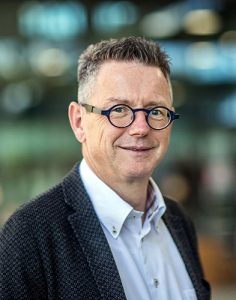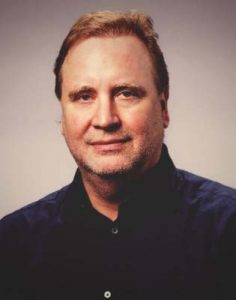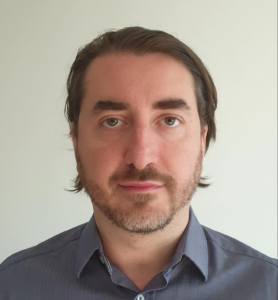
- This event has passed.
Reporting workshop: The end of Software Engineering – as we know it
December 12, 2024 @ 10:00 - 17:00
In Software Center, companies and universities work together to accelerate the adoption of novel approaches to software engineering. The reporting workshop takes place twice a year, in June and December.
This event aims at sharing results from research and cooperation within Software Center, including activities in the competence center CoDig, hosted by Software Center. The day before the reporting workshop there is an additional interactive workshop where you have the opportunity to discuss technical challenges with the Software Center projects, more information here >>
The agenda for the reporting workshop ranges from keynote presentations to in-depth sessions for themes and projects. The cooperation between academia and companies in Software Center creates the software engineering success stories that industry needs.
Registration:
Please register at this link: https://forms.gle/HuqJJmjojqJszepc7
Link for virtual participation – all plenary sessions:
You can join the meeting over Teams, but the digital solution will not offer an opportunity to interact with speakers:
Link to the Teams townhall meeting >>
Dec 11th: Pre-reporting workshop mingle
We meet for an informal warming up for the reporting workshop (at own cost):
18.00 at OGBG Bar & Restaurang, Comfort Hotel, Skeppsbroplatsen 1411 21 Göteborg
Agenda:
09.30 – 10.00: Registration and coffee
10:00-10:15: Opening: Jan Bosch
10:15-10:45: Digital twins: keynote presentation by Mark van den Brand, Eindhoven University of Technology, Software Engineering and Technology
High-tech systems are becoming increasingly complex and more difficult to design, manufacture and maintain. The DIGITAL TWIN program develops methods to make accurate digital twins of these types of systems: virtual software versions that allow you to run simulations to predict, for example, how changes in the design affect performance, how control can be improved, or which part on which needs maintenance at the moment. Digital twins are still mostly based on static theoretical models that assume normal behavior. By linking these models to measurement data that indicate how the system actually functions and combining this data with artificial intelligence, the researchers make digital copies that continuously improve and adapt themselves. The research focuses on a number of exemplary systems provided by the Dutch high-tech companies involved in the program.
10.45-11.00: The impact of SDV and AI on Next-Generation Tier1 ADAS development
Company presentation by Tobias Aderum, Director Research & Innovation at Magna Electronics
Read more at: https://www.magna.com/products/electrical-electronics/adas-automated-driving
11:00-11:30: Community updates and introduction to poster session:
- Theme 1: Daniel Varro, Linköping university
- Theme 2: Jan Carlson, Mälardalen University
- Theme 3: Miroslaw Staron, University of Gothenburg
- Theme 4: Helena H Olsson, Malmö University
11.30 – 12.15: Poster & mingle session
12:15 – 13:00 Lunch break (lunch at own expense)
Recommended lunch restaurant: https://www.facebook.com/wastegbg/
13:00 – 13.40: The AI maturity journey: how to scale up value from data and AI in an organization:
Industrial keynote presentation by Anders Arpteg, Senior director, Head of AI and Data CoE, Global Connect group.
Many companies struggle to fully capture the value of data and AI, often finding themselves stuck in isolated AI initiatives without broader impact or even completely failing to take advantage of the possibilities. Unlocking value from AI is a journey, requiring a strategic approach to move from small-scale AI projects to a company-wide adoption that drives real transformation. The potential of data and data and AI is immense, but to climb the AI maturity scale and achieve meaningful results, organizations must have a well-defined strategy guiding their progress.
13.40-14.00: Software architecture and AI: presentation by Antonio Martini, University if Oslo
AI took the world by storm, fundamentally changing the way we architect traditional systems, but also the way we need to architect novel AI (sub)systems. For example, how do we integrate AI modules in traditional software with a long-term perspective, including maintainability and evolvability? How do we use AI to assess our architecture, for example its modularity or if there are performance anomalies? Do architects need to fundamentally evolve their role and competences?
14:00 – 16.00: Parallel tracks (incl coffee break)
1: Data: Dare to Dream (Room: the Studio, same as plenary)
- Session organizers: Helena Holmström Olsson and Jan Bosch
- Speakers: Ingmar Bengtsson, Volvo Group Truck Technology
- Background: In our research on data practices, we see that people are often more focused on the constraints associated with data than exploring the opportunities that data can bring. In most situations, we want the data, we know it has value, but we don’t dare to fully use and exploit it due to e.g., regulations, ownership constraints, ways-of-working that are not well-established, costs associated with storage, processing etc., and lack of quality to mention a few.
- Session focus: In this session, we look for ideas and discussions on: “What if there were no constraints? What if we didn’t have these challenges and uncertainties? What if we could not fail? If so, what are the things we would do with data?
- Session format: The session is interactive in nature with a mix of presentations from research and industry, and with group discussions/exercises.
2. AI-supported digitalization – Quantum and generative AI (Room: Workshoprummet, 1st floor)
Link to online participation: Join the meeting now
passcode: GF3n7iF6
- Session organizer: Miroslaw Staron
- Session focus: Quantum & Generative AI – how can we utilize quantum computing in software products? Are we ready for large-scale adoption yet? When will Quantum Computers be available like datacenters for AI?
- Speakers:
- Mikael Haglund & Henrik Sjöstrand, IBM Sweden
- Pontus Vikstål, Mårten Skogh, Chalmers NextLabs
- Petter Sutton, Boeing
3. The future of software and system modelling (Room: Wonderwoman)
Meeting ID: 393 818 596 770
Passcode: d4R7ff9U
- Session organizer: Jan Carlson, Mälardalen University, & Daniel Varro, Linköping University
- Session focus: What is the role of models and modeling when building the software-intensive systems of the future? Should we still model? If so, what? And how much is enough? Can models still be a useful tool in AI-supported development, or is modeling becoming an outdated way of working?
16.00: The end of Software Engineering as we know it
Presentation and fishbowl discussion
16.45 – 17:00 Plans, reflections & closing: Jan Bosch
Speakers:
Mark van den Brand: professor of Software Engineering and Technology, Technical University of Eindhoven, the Netherlands |
||
 |
. |
Mark van den Brand is a full professor of Software Engineering and Technology in the Department of Mathematics and Computer Science, and a visiting professor at Royal Holloway, University of London. His current research activities are on model driven engineering, domain specific languages, meta-modeling, model management, digital twins, and automotive software engineering. His research is industry inspired; he works with most of the high-tech companies in the Eindhoven region, the Netherlands. He has been an invited lecturer and keynote speaker at various conferences, workshops and doctoral schools. He was and is member of PCs on workshops and conferences related to software engineering, language engineering, rewriting, reverse engineering, and software maintenance. Mark initiated the special issues of Science of Computer Programming devoted to academic software development (Experimental Software and Toolkits), and since 2007 has been guest editor of six of these. He is on the editorial board of the journals Science of Computer Programming, Open Computer Science, and Computer Languages (COLA). He is Editor-in-Chief of the Journal on Automotive Software Engineering. He is associate Editor-in-Chief of the Software Section of the Science of Computer Programming. He is deputy Editor-in-Chief of platinum open access journal JOT. |
Anders Arpteg: Senior director, Head of AI and Data CoE, Global Connect Group |
||
 |
Anders Arpteg is AI director, engineer, scientist, and investor with 25+ years of AI experience in both academia and industry, with a Ph.D. in AI from Linköping University, Sweden. Previously heading up research at Spotify, Peltarion, and data science at the Swedish Security Service, now heading up a Center of Excellence for AI and data at GlobalConnect. Anders has also been part of starting up national AI initiatives such as AI Sweden and the Swedish AI Agenda, member of the European AI Alliance, AI reviewer for ICML, ICLR, JCP, and the Swedish innovation agency Vinnova, and host of the AI After Work podcast, and received awards such as Lifetime achievement in AI from the Nordic DAIR Awards in 2021. |
|
Antonio Martini, Professor, University of Oslo |
||
 |
I am Professor at University of Oslo. My latest interests are on using AI for software engineering, specifically for technical debt and software architecture, and to improve software engineering practices for AI. In general, my research focus is on managing Technical Debt, Architecture, Technical Leadership, and Agile software development. I’m very keen to work with software companies and improve the state of art and practice together. My experience covers Software Engineering and Management in several contexts: large, embedded software companies, small, web companies, business to business companies, startups. I’ve collaborated with several large companies such as Ericsson, Volvo, Saab, Axis, Grundfos, Siemens, Bosch, Jeppesen, Siemens, Visma, AKVA Group, Knowit, and more. I’ve also worked with my own company and I’ve run consultancy projects to manage and visualize Technical Debt. I’ve obtained a PhD in Software Engineering at Chalmers University of Technology, Sweden in 2015. |
|
